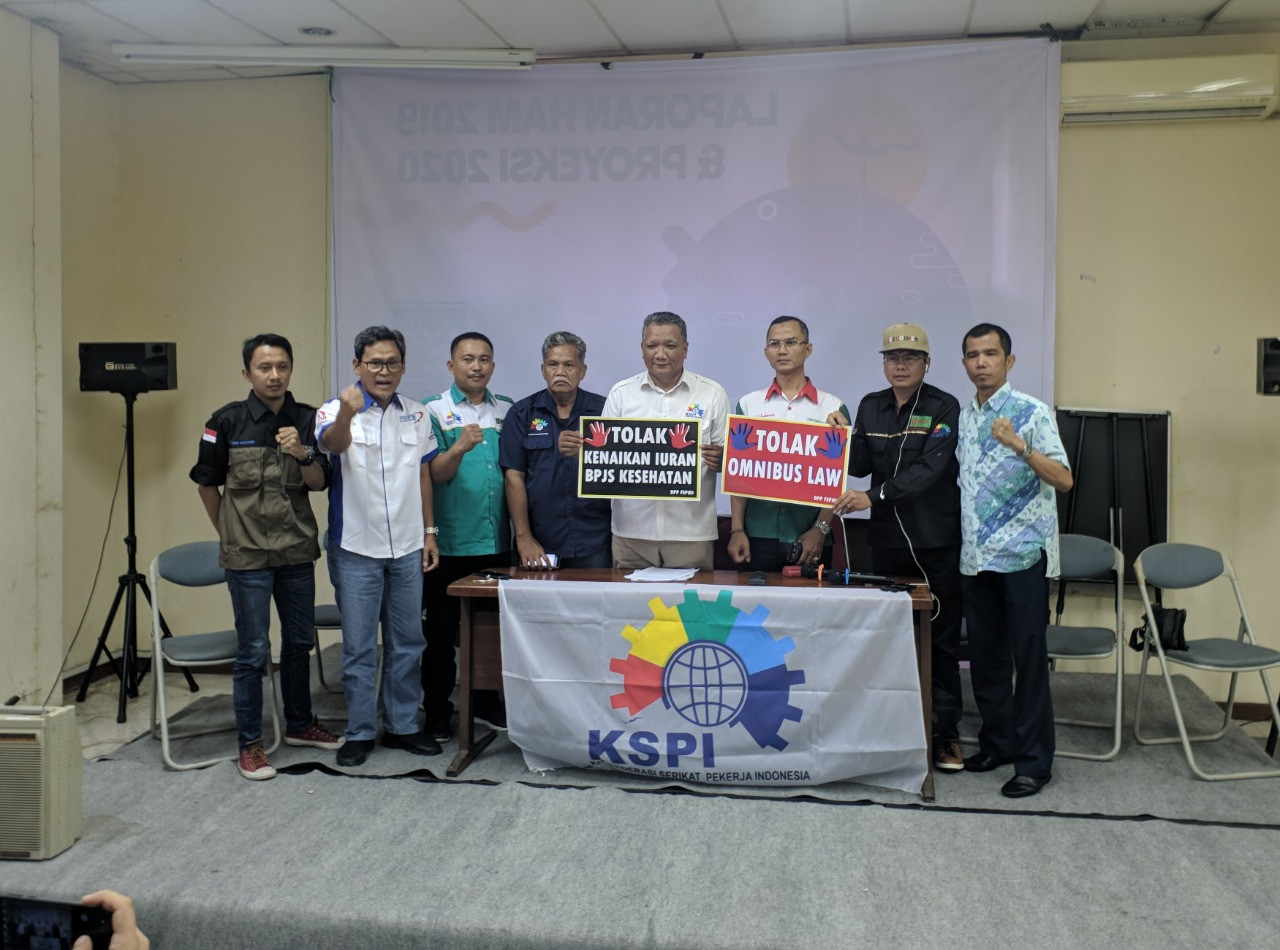Popular Reads
Top Results
Can't find what you're looking for?
View all search resultsPopular Reads
Top Results
Can't find what you're looking for?
View all search resultsMaking omnibus public
The House of Representatives and the government must ensure that a wide range of voices provides input on the drafts — make them public for review — and be flexible in adjusting to broad public needs as opposed to vested interests.
Change text size
Gift Premium Articles
to Anyone
 Indonesian Worker Union Confederation (KSPI) and associate leaders pose during a press conference to announce their stance and plans regarding the omnibus bill on job creation and the Health Care and Social Security Agency (BPJS Kesehatan) premiums increase at the Jakarta Legal-Aid Institution (LBH Jakarta) Building in Central Jakarta on Friday, Jan. 18. (JP/Moch. Fiqih Prawira)
Indonesian Worker Union Confederation (KSPI) and associate leaders pose during a press conference to announce their stance and plans regarding the omnibus bill on job creation and the Health Care and Social Security Agency (BPJS Kesehatan) premiums increase at the Jakarta Legal-Aid Institution (LBH Jakarta) Building in Central Jakarta on Friday, Jan. 18. (JP/Moch. Fiqih Prawira)
O
pposition to the government’s sweeping economic reforms has been loudly expressed even before three draft omnibus bills on jobs creation, taxation and small and medium enterprises (SMEs) are finalized.
Labor groups have taken to the streets, fearing that labor rights will be sacrificed to attract investment, such as through the relaxation of severance pay, one of the main issues in Indonesia’s labor market that many have claimed hampers investment. There are also concerns that the reform will pave the way for more unskilled workers coming to Indonesia by relaxing outsourcing and foreign worker restrictions.
Environmentalists and property developers have warned the government about the risks of relaxing environment impact analysis (Amdal) and building permit (IMB) regulations. Without strong enforcement in spatial planning and strategic environment assessment, the reforms could result in sloppy development planning.
Economists warn of lower state revenues and unsustainability in state budgets if corporate income tax, among other tax payment obligations, are cut. Meanwhile, taxing the digital economy, as planned in the omnibus bill on taxation, may not yield enough to counter losses from lower corporate income tax.
All these arguments serve as a reminder for the government in a healthy democracy and emerging economy to be more prudent in drafting the omnibus bills and to include as many stakeholders as possible in its reform agenda. Indonesia is in dire need of economic reform, one that not only attracts investors, but is targeted, credible and contributes to quality and sustainable development.
In doing so, the government needs to answer the question: How inclusive has it been in drafting the omnibus bills? In the deliberation process, the House of Representatives and the government must ensure that a wide range of voices provides input on the drafts — make them public for review — and be flexible in adjusting to broad public needs as opposed to vested interests. Prevailing laws and regulations already support this bottom-up practice.
Omnibus laws, commonly used to speed up lawmaking and amend relevant laws to improve their functioning, can become a double-edged sword. They can accelerate reforms, but may also contribute to the democratic deficit given the lack of scrutiny of the hefty amount of laws and articles to be amended or revoked, according to current studies.
Some 79 laws and 1,244 articles will be revised, the government has said. It is imperative that the government make the impossible possible: encouraging and taking into account public scrutiny in the deliberation process. It may be time to focus on big-bang reforms and winning the war as opposed to winning some battles by concentrating on small details.
The World Bank has pointed out that the problems with foreign direct investment in Indonesia — if this is the type of investment the government is trying to attract with the omnibus bills — are credibility, certainty and compliance. The omnibus bills will only address the “credibility” issue about whether Indonesia is open for business. After reforms take place through the omnibus laws, certainty over rules that are predictable and not discretionary, as well as compliance with such policies, are the broader goals.









